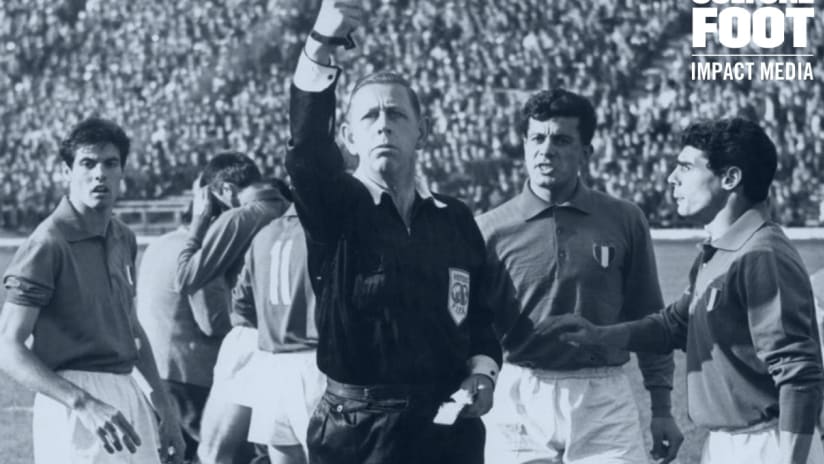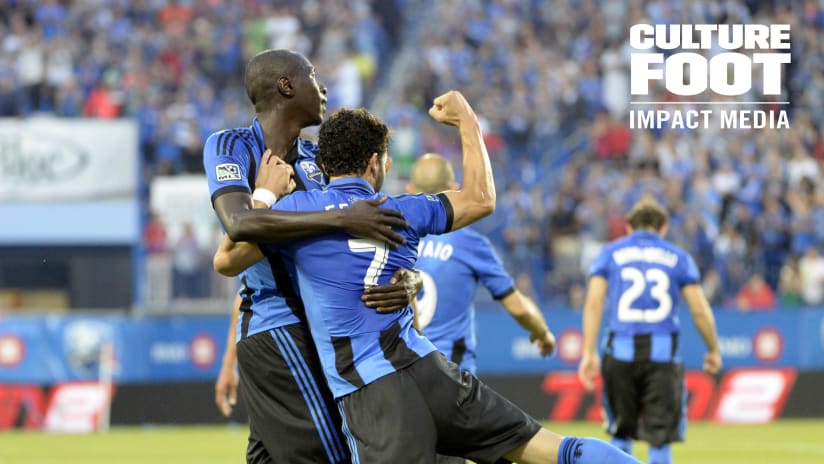Breaking down the craziest soccer moments
It’s time to visit the darkest timeline. A few days ago, the second leg of the Copa Libertadores final, featuring rival clubs from Buenos Aires, Boca Juniors and River Plate, was played at the Santiago Bernabéu, in Madrid, Spain, over two weeks after the original date and literally 10,000 kilometres away from the Argentine capital.
Why, you ask? Why would a tournament whose name celebrates the liberation of South America from Spanish colonial rule organize the biggest game in its history on Spanish soil?
Because the Boca Juniors bus was violently attacked a few hours before the second leg was set to take place. It shocked everyone, forcing CONMEBOL to make a drastic decision.
The events had the footballing world watching closely; it was out of the ordinary, unique.
In honour of this extremely particular Copa Libertadores final, Impact Media looks at some of the other abnormal, shocking, and out of the ordinary happenings in the history of modern-day football.
The Hillsborough disaster
Hillsborough will probably forever be considered as the worst disaster in British sporting history, causing 96 fatalities and 766 injuries. The scene was the FA Cup semi-final, pitting Liverpool against Nottingham Forrest, with Hillsborough Stadium in Sheffield chosen as neutral ground.
The “human crash”, as it was described, happened in the standing-only stands allocated to Liverpool supporters. Blame was at first put on the hooliganism and drinking of Liverpool supporters, although it was later revealed that it was a police operation gone wrong. With so much overcrowding going on right outside the stadium, police decided to open an exit gate minutes before kickoff; a disastrous decision that led to horrific scenes.
A few minutes in, the referee brought the game to a halt. Supporters were spilling onto the pitch behind the net, while others struggled to climb onto the second deck. At that point, it was already too late.
The murder of Andres Escobar
The passion surrounding the beautiful game is what makes this sport so appealing to its millions of supporters around the world. But sometimes, passion can take a turn for the ugly, like it did in Andres Escobar’s case. Escobar was a Columbian defender, who was called up by his national team for the 1994 World Cup in the United States. In a game against the hosts with the score tied at one goal apiece, Escobar slid to intercept a pass, but instead deflected the ball into his own goal. The Americans would end up winning 2-1.
Of course, with Columbia’s eventual elimination in the group stage, Escobar went back home. Just five days later, in Medellin, after a night out with friends, Escobar was approached by three men as he was entering his car in the wee hours of the morning. The defender was shot six times, the murderer shouting GOL after every bullet fired, for the amount of times the commentator had said it during the broadcast.
149 goals scored
You read that right. In a game between AS Adema and SO de l’Emyrne, two clubs from Antananarivo, Madagascar’s capital, the final score was 149-0 and was officially recognized in the Guinness Book of Records. Of course, allowing 149 goals is almost impossible in a normal situation, but this was no normal situation.
SO de l’Emyrne intentionally lost the game to protest refereeing decisions that had gone against them in the previous game of this four-team tournament. Already out of the competition, the players protested by scoring in their own goal after every whistle, to the bemusement of the other team. They did this 149 times.
Needless to say, fans in attendance quickly made their way to the ticketing office to demand a refund.
The battle of Santiago
The 1962 World Cup was held in Chile, and a group match would see the hosts take on the Italians. Much of the blame for the events that transpired can be put on two Italian journalists who wrote crude comments about Chile’s capital, Santiago, and on Chileans in general, when they visited for the World Cup. Not the type of comments a dissatisfied customer would write following a bad restaurant experience; these were some crude comments.
Chilean papers fired back of course, leading to an extremely heightened situation once gameday came around. The tension took no time spilling onto the pitch. See for yourself.
Described as the most violent game of football ever played, Chile would go on to win 2-0, and Italy would see two of its players sent off – not the red card sending off, since that didn’t exist, but one that required police intervention instead. It had everything; kung-fu kicks, punches in the face, slide tackles meant to hurt. Probably inspired by this undisciplined game, the referee Ken Aston would go on to introduce yellow and red cards.
On a side note, while we’re on the subject of kung-fu kicks, let’s not forget Eric Cantona kicking this supporter in 1995.
The ultimate betrayal
Luís Figo is recognized as one of the greats in football history, and one of the only players to play for both Barcelona and Real Madrid. The Portuguese legend spent five years at Barcelona, before making the move to Madrid for what was then a record transfer fee.
Needless to say, Figo’s return to the Nou was a tumultuous affair. The words “traitor” and “betrayal” were ringing around the stadium. But it was his second visit to his former club that created one of the rivalry’s lasting images.
As Figo slowly made his way to the corner flag as Madrid’s set-piece specialist, Barça fans took it upon themselves to throw missiles at him… which included a pig’s head. How that supporter even managed to bring that into the stadium is beyond us.
About a decade ago, your very own Bleu-blanc-noir was in a strange situation of its own. The occasion was the Concacaf Champions League in 2008, the first time the Montreal Impact qualified for the continental tournament.
Its first test was against Nicaraguan side Real Esteli FC. After managing a slim 1-0 win at Stade Saputo, both teams made their way to Central America for the second leg – not in Nicaragua, but in Honduras. Unfortunately for Esteli FC, not one stadium in Nicaragua respected FIFA and Concacaf regulations. Good news for the Impact, who traded a potentially hostile atmosphere and a field in bad shape for a return match in Honduras.
The game would end in a scoreless draw, sending the Impact to the next round.




